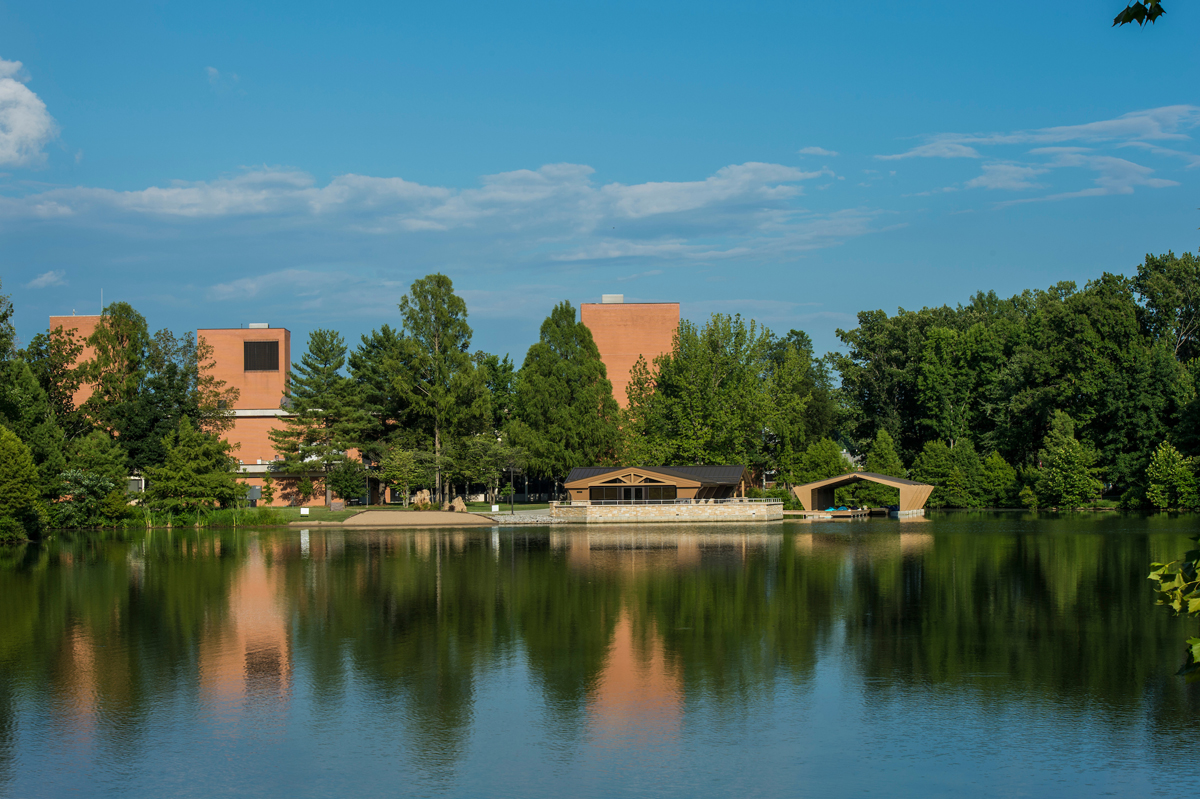
April 19, 2019
Sustainability projects aimed at improving Campus Lake, student recreation opportunities
Humans and nature, staying healthy together in symbiotic and entertaining atmosphere.
That’s the focus of several new “eco-recreation” projects scheduled for installation this week on Campus Lake at Southern Illinois University Carbondale.
Weather permitting, officials plan to put them in place beginning at 11:30 p.m. Thursday at Becker Pavilion. A rain date will be announced if it becomes necessary.
Green Fee paves the way
The Student Green Fee-funded projects have been a priority for students and others concerned with sustainable practice on campus, said Geory Kurtzhals, sustainability coordinator. A student-led committee recommended it to the Sustainability Council for funding in both 2017 and 2018, resulting more than $60,000 for supplies, data collection and other necessary expenditures to develop and build the projects.
“These projects were appealing because Campus Lake is a beloved part of the SIU campus, and the students had the opportunity to solve a real-world sustainability issue using an interdisciplinary approach,” Kurtzhals said. “The campus is a living-learning laboratory.”
Designs aimed at lake aeriation, student health
Marjorie Brooks, associate professor in the zoology degree program, said the Sustainable Eco-Recreation projects will invite students to stay healthy and have fun, all while helping Campus Lake’s overall condition and health, too. The projects include:
- A prototype pedal-powered water pump on a stationary bike that will send water to a fountain along the shoreline.
- An obstacle course of solar-powered fountains that will aerate waters by the Becker Pavilion while people get a workout by paddling their kayaks and canoes.
- A network of two wireless, solar-powered buoys, including one near the obstacle course and another in a protected cove without water aeration. The wireless system will send temperature data across campus to provide sustainability workers with information about how the projects are changing lake conditions.
Projects to mitigate excessive algae
Brooks said 23 storm drains feed Campus Lake with nutrients that in turn can cause excessive growth of algae.
“These projects will help maintain a health food web in Campus Lake,” Brooks said. “The aeration and cooling the projects provide will help slow algal growth and limit nutrient uptake.”
But students also reap benefits from the projects, Brooks said. The new forms of water recreation will give them opportunities for cardio workouts and stress relief, while the students developing these designs are learning important professional skills such as planning, collaborative design, problem solving and public presentation.
“Students studying the environmental impact of these designs are using innovative genetic and molecular techniques to demonstrate how aquatic ecosystems and people benefit simultaneously,” she said.
Brooks said campus sustainability personnel plan to continue collaborating with the Department of Engineering, Physical Plant and Student Recreation to promote student health and healthy ecosystems.
April is Earth Month, and Kurtzhals said campus sustainability leaders plan to announce new initiatives for the next fiscal year during an event set for at 11 a.m. April 30 at Guyon Auditorium in Morris Library.
